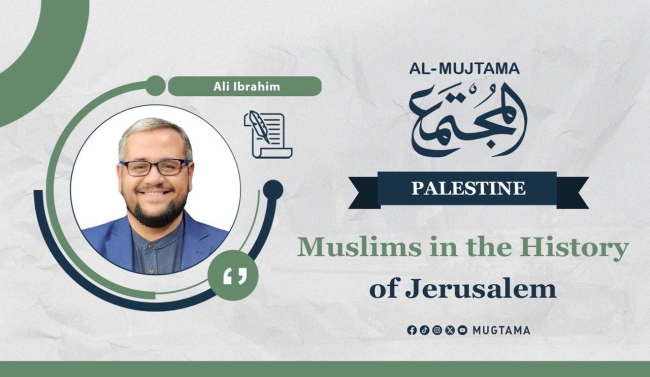Man is inherently connected to his history, from the moment his eyes open in this world until his final moments in it. History is not merely a record of human milestones, but rather a depiction of the human being, his environment, and his society, offering glimpses of a bygone era. History has become a chronicle of human evolution.
In the Quran, Allah often refers to the stories of the past to draw lessons for mankind. He says, "So relate the stories that perhaps they will give thought." (Quran 7:176) and "We relate to you, [O Muhammad], the best of stories in what We have revealed to you of this Qur'an" (Quran 12:3).
Understanding the experiences, stories, and lessons of those who came before us is crucial. Through the study of history, we gain a precise and clear understanding of the world, past eras, the experiences they contained, and the lessons they offer. History allows us to trace the course of human civilizations, understand their rise and fall, and comprehend the factors that contributed to their prosperity or decline. Moreover, it plays a central role in deduction, justification, and more.
Regarding the significance and status of history, Ibn Khaldun, the scholar, described it as follows: "The art of history is one of those arts that nations and generations pass on, and people from all walks of life are drawn to it. It is valued by the elite and the commoners alike. It attracts kings and leaders, and it is understood by scholars and laymen. At first glance, it may seem like mere accounts of days and nations, with precedents from ancient times where opinions are formed, proverbs are coined, and clubs engage in debate. It tells us about the condition of creation, how circumstances have changed, and how territories and domains have expanded. People have inhabited the earth until they are called to depart, and within its depths, there is observation, investigation, and profound understanding. It provides insight into the wisdom of life and is worthy of being considered in its sciences and characteristics."
This highlights the general significance of this field of knowledge. The aggressors and enemies of the nation have attempted to distort our history and implant in the minds of the youth a distorted past that does not resemble the reality of their history. Therefore, the history of Islam in general, and the history of Palestine in particular, has become a vulnerable point that must be guarded and defended, lest Islam or Palestine be attacked through it. Our history has become a target for the arrows of skeptics, deniers, enemies, and the ignorant, just as the sciences of Islamic Sharia, including creed, jurisprudence, and hadith, are targeted.
In the context of showcasing even small parts of this extended history and its great achievements, we present to the esteemed readers of "Al-Mujtama" magazine an overview of the most prominent milestones in the Islamic history of Jerusalem, the jewel of Bilad al-Sham, the capital of Palestine, and one of the most prominent cities in the history of the Ummah. Throughout the successive Islamic centuries, Jerusalem has been a center of thought, culture, faith, and religion, contributing to its further cultural, urban, and civilizational development.
In this series, we will discuss the most significant events that have occurred in this city under the successive Islamic states, shedding light on the scholars, figures, symbols, and reformers it has encompassed, as well as those who have passed through it as teachers or students. We will also explore how caliphs, rulers, and sultans have cared for it, giving this series, upon its conclusion, a picture of this Islamic interest in the city and parts of its scientific, intellectual, and social history. This underscores the importance of preserving this great history and emphasizes that reclaiming this heritage in defence of the city's reality and its importance is part of overcoming the enemy and confronting its arrogance and aggression.
-------------------------------------------------------------


